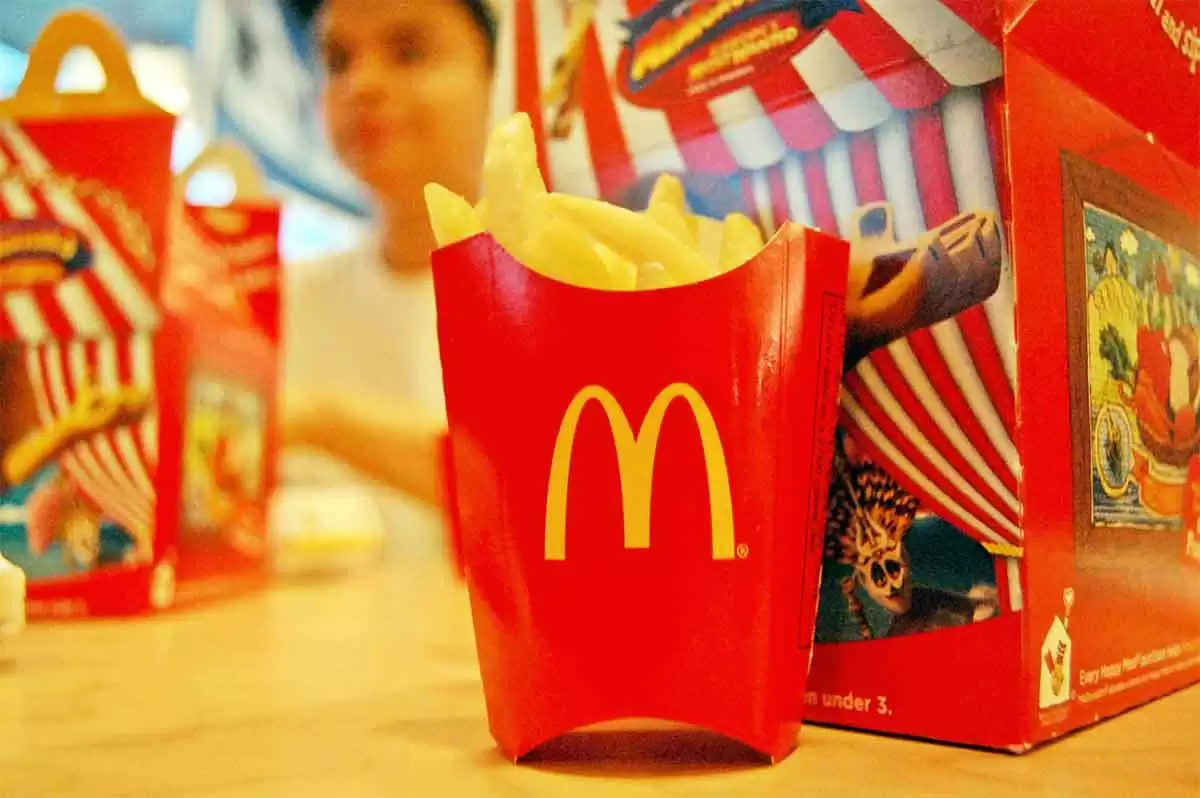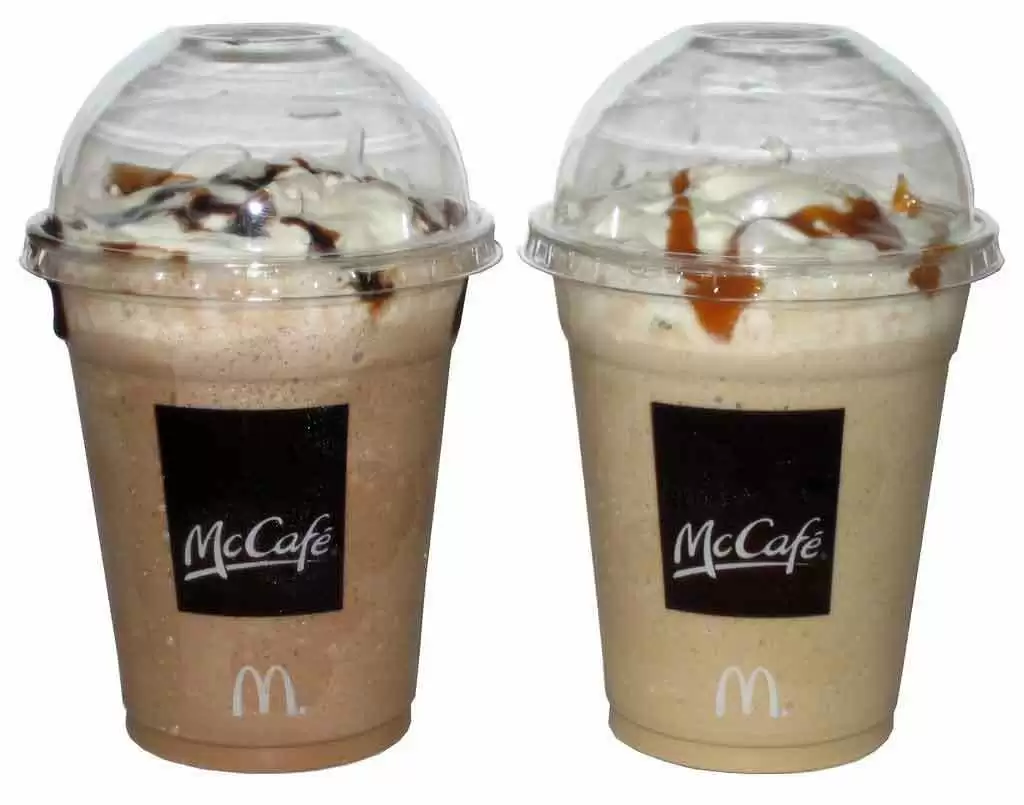
Celiac.com 11/12/2021 - Is it possible for a large, multi-billion dollar, multi-national corporation like McDonald’s to make an honest mistake—even if that mistake benefits them directly by increasing their sales and bottom line? For many people the answer is no—never—there must be some conspiracy or greedy modus operandi at work which better explains the situation. If you are a die-hard conspiracy theorist there may be little in this article that will change your position with regard to McDonald’s and their recent “gluten problem.” My hope, however, is that people on both sides of this issue will gain some knowledge here—especially with respect to how difficult it really is for all food companies to determine and guarantee the gluten-free status of their foods. Additionally, I believe that we can all learn something from McDonald’s mistake (or uncovered secret plot!), and how they have dealt with it.
For many years McDonald’s has told its customers via their Web site and customer service telephone line that their French fries and hash browns were gluten-free. Due to their wide availability and low price these menu items have become a staple for many people on a gluten-free diet. The drama surrounding these foods began on February 13, 2006, when the Houston Chronicle broke this story: “McDonald’s: Fries Have Potential Allergens.” This article revealed that the natural flavoring used in those menu items actually contains wheat as an ingredient. According to a March 8th email from Catherine E. Adams Ph.D, R.D., McDonald’s Corporate Vice President Worldwide Quality Systems and Nutrition, McDonald’s first noticed this potential problem when one of their ingredient suppliers had to comply with the new Food Allergen Labeling and Consumer Protection Act, which required that supplier to list, if present, any of the eight major allergens (or their derivatives) on the packaged food’s product label. The supplier complied and informed McDonald’s of their “use of wheat as an ingredient in the natural flavoring.”
A Case for Innocence
Celiac.com Sponsor (A12):
There are several reasons why I believe that this whole incident was a large, avoidable, mistake on the part of McDonald’s (rather than a secret plot):
- The timing of the event: This story broke one month after the new labeling laws took effect. McDonald’s likely had no idea that wheat was in the natural flavoring until it was revealed to them by their supplier (of course they should have done due diligence and known this back when they created their gluten-free product listing.);
- Something that was contained in Ms. Adams’ March 8th email response: “While the new law applies to packaged food products—not the restaurant industry—in our ongoing efforts to communicate to our customers we thought it was important to share this information.” She is legally correct here—the new law does not require McDonald’s to reveal the fact that there is a wheat-derivative in their natural flavoring—the law does not apply to the restaurant industry and only applies to the packaged food consumer market (certainly this is a loophole that needs to be changed in the future). If McDonald’s wanted to keep this a secret from the public they could easily have done so because there is no legal requirement for them to disclose any allergens in their foods. They have done this on a strictly voluntarily basis for many years now;
- Public image: McDonald’s has gone to a great deal of effort over the years to voluntarily disclose their list of “safe” foods for people with various allergies—mainly because it is good for their public image—and to a certain extent the allergy market has been a source of revenue and has likely increased their sales. Misleading people with regard to the allergens in their foods, whether it is done on purpose or by mistake, would surely lead to major lawsuits that would likely negate any financial gain achieved from this relatively small market—and would create a public relations nightmare. To a company like McDonald’s public image is everything. It seems doubtful that they would intentionally take such a great risk to gain a share in such a small market.
Let the Lawsuits Begin
Very soon after the newspaper story broke the French fries and hash browns were taken off of McDonald’s gluten-free list on their Web site. On February 19,, 2006, the Wall Street Journal ran the article: “McDonald’s Faces Three Lawsuits,” and thus began the “lawsuit bandwagon” that continues to the present. It has the potential to ultimately cost them tens if not hundreds of millions of dollars through a class action suit. At about this same time I actually had to ban a major Colorado law firm from the Gluten-Free Forum (www.glutenfreeforum.com) because they were trying to use the site to solicit forum users to join a class action suit that they planned to bring against McDonald’s. This violated the site’s rules against advertising.
McDonald’s Response
On February 20,, 2006, only one day after the Wall Street Journal article appeared, Jack Daly, Senior Vice President of McDonald’s Corporation, issued a media statement on their Web site titled: “McDonald’s Fries are ‘Gluten and Allergen Free,’ According to Expert.” It stated that:
“Scientific evaluation by one of the world’s leading experts on gluten sensitivity and allergenicity, Dr. Steven Taylor of the Food Allergy Research and Resource Program of the University of Nebraska, has confirmed again that our fries are gluten free and allergen free. Based on this analysis, we believe the lawsuits filed are without legal merit.”
Support Groups to the Rescue
Shortly after the release of Jack Daly’s media statement the Gluten Intolerance Group (GIG) issued a press release titled “McDonald’s: A Safe Place for Celiacs to Eat According to the Gluten Intolerance Group”, which backs up McDonald’s claim that their fries and hash browns are gluten-free. The Celiac Sprue Association (CSA) also released a statement on their Web site that supported McDonald’s, and in much more detail than the GIG’s, including the following statement:
“The CSA has examined the commercial manufacturing process of the natural flavoring with wheat as a starting ingredient which is used in connection with the McDonald’s Corporation French fries and hash browns. CSA provides the following statement after knowledgeable, careful evaluation and review of the process and pertinent test results. French fries and hash browns prepared in oils with this flavoring might be considered, commercially, to ‘contain no gluten.’”
What Does “Gluten-Free” Mean Anyway?
Reliable sources have since revealed that the wheat used in McDonald’s natural flavoring is processed in such a way that nearly all proteins are removed, much like the distillation process removes gluten from wheat, and that the actual gluten content in the French fries and hash browns—according to RidaScreen Gliadin Elisa testing—is less than 3 parts per million (PPM). It is still possible for partially broken down wheat proteins to be present, so a Rast test was also done and no wheat-allergic residue was detected. Together these results are convincing and indicate that McDonald’s French fries and hash browns are indeed gluten-free by any current standards that are in use anywhere. But “less than 3 PPM” is not zero gluten—right? Keep in mind that it is currently impossible for anyone to say that any food or product is 100% gluten-free—there is no analytical technique that can say that there is zero gluten in a sample, and the best detection limits I have seen report low ranges from 2 to 20 PPM—not zero. The Codex Alimentarius, which covers the U.S.A., and Canadian standards for gluten-free is 20 PPM for naturally gluten-free foods, and there is currently no gluten-free standard for the U.S.A.
Do the Lawsuits have Merit?
Based on the aforementioned test results it is highly doubtful that McDonald’s has hurt anyone with these products—which is what must be shown in such cases—the claimants must demonstrate actual damages, loss or injuries related to the defendant’s actions (or inactions), and if they cannot do this their suits will be without merit and will be thrown out (which is what I believe will happen here). Even if the testing had found higher levels of gluten in the products the claimants would still be facing an uphill battle. This is because they would still have to demonstrate that a specific injury was caused to them by McDonald’s, and that their injury didn’t occur by another means. In other words they would have to show that there were no other sources of gluten contamination in their diets, which is something that is difficult if not impossible to do in a legal context. On top of these problems the claimants must overcome the fact that in the U.S.A. there are no current legal regulations regarding the use of the term “gluten-free” on packaged or restaurant foods. The only thing that comes close is the Codex Alimentarius, which are voluntary industry guidelines and not legal regulations.
The Damage Done
Whether or not McDonald’s wins or loses these lawsuits may, however, be irrelevant. To a certain extent the damage has already been done—and it does not stop simply with the damage that was done to their public image and reputation. The fact that many people with allergies and intolerances will never again trust McDonald’s (or companies like them) is just the most obvious fallout from this whole mess. There is a much larger picture taking shape that began with McDonald’s no longer listing the gluten-free product information for many of the items that they used to list. Their French fries, hash browns, shakes, dressings, etc., and other companies have also discontinued their “gluten-free” product listings. Some companies have even stopped using the term “gluten-free” on their labels, even though their products remain gluten-free. One company even contacted me and wanted to be removed from the offerings at The Gluten-Free Mall due to liability concerns that began when they heard about the McDonald’s fiasco.
For companies like McDonald’s the potential benefits of providing such voluntary information must outweighs the risks. The extensive publicity surrounding these events has made it clear that the risk of being wrong when making the claim that a product is free from an allergen, even if the mistake is an honest one that began with perfectly good intentions, is very great. So why risk making such claims at all? (This will be the question asked by the companies’ lawyers anyway.) The fallout from this may not end for some time. Certainly anyone making, selling or claiming that their products are gluten-free (or free from some other allergen) must be concerned about the possibility of litigation. In the end it will likely be easier for many companies not to bother with the allergen market at all, especially once real gluten-free regulations are created here in the U.S.A., which will happen in the next couple of years.
Hindsight
How could McDonald’s have avoided all these problems in the first place? The most obvious answer is that they could have avoided making any claims about the allergens in their products. That would have left those of us who have food challenges in the dark. Does that sound like McDonald’s to you? I hope such a negative scenario doesn’t become the norm for such companies. Perhaps the best solution would have been for them to consult with some of the many celiac disease/gluten-free experts, for example the Gluten Intolerance Group’s new Food Certification Program, or with Donald D. Kasarda, Former Research Chemist for the United States Department of Agriculture, and made 100% sure that their lists were accurate (in this case it appears that their lists were accurate, but disclosing ALL of the actual ingredients in their products would have avoided much of this controversy).
I think that all food companies can learn a valuable lesson from these events: it is better to test your products before you have any issues, and to continue to test them periodically. It is better to conduct ingredient research up front and consult with experts before publishing any gluten-free product listings—this is an ongoing process and must be done regularly because ingredient suppliers may change. Once the information is compiled and determined to be accurate it is better to disclose ALL ingredients used in every product. Web sites are a great place for such information. Even if you operate a restaurant and are not legally required to do so, public disclosure is best when it comes to things that your customers put in their mouths—and your customers have a right to know exactly what they are eating. Fast food companies should print ALL ingredients on the packaging no matter how scary they sound. Individuals who are concerned about such matters will, or should, be familiar with what is and is not safe for them.







Recommended Comments
Create an account or sign in to comment
You need to be a member in order to leave a comment
Create an account
Sign up for a new account in our community. It's easy!
Register a new accountSign in
Already have an account? Sign in here.
Sign In Now